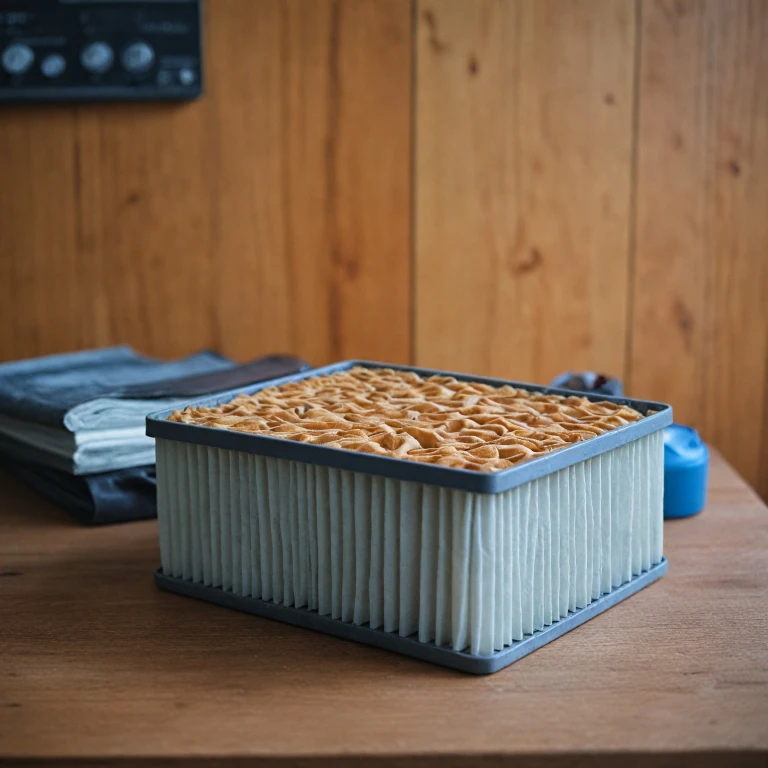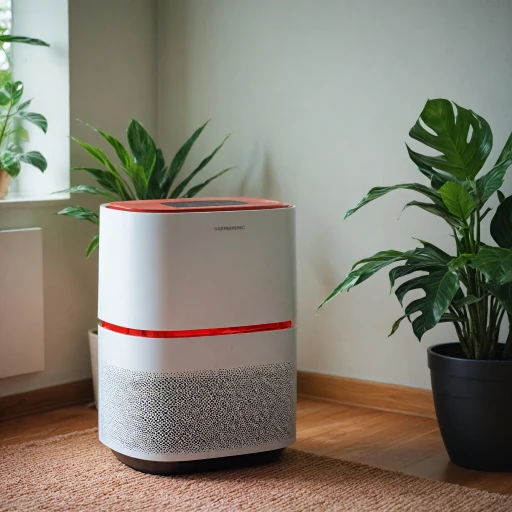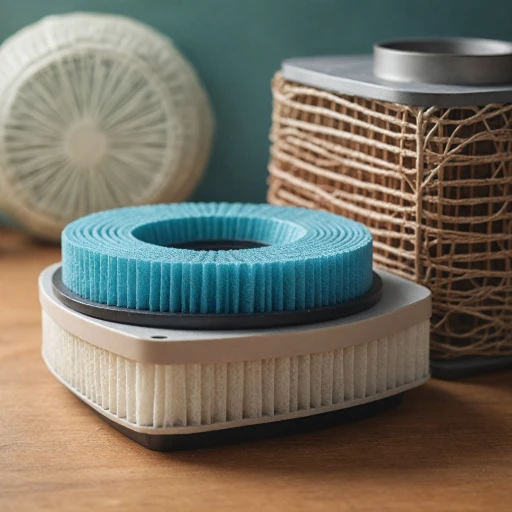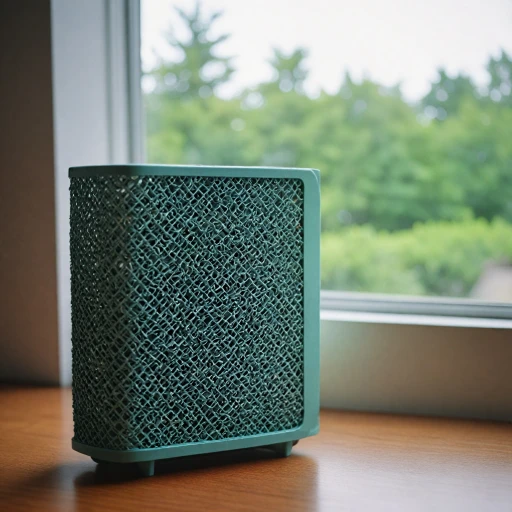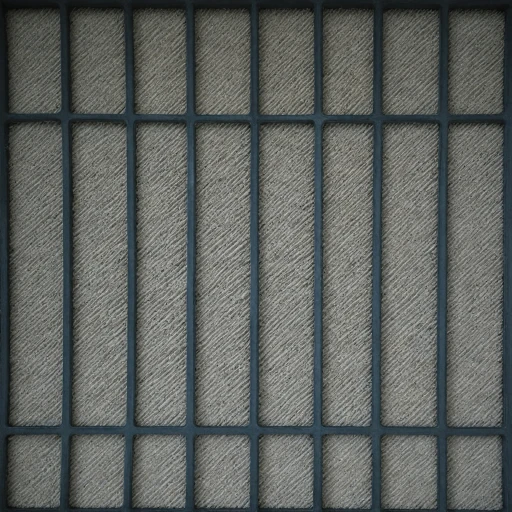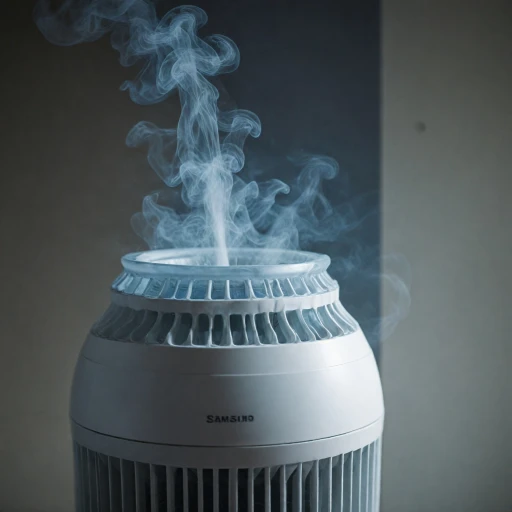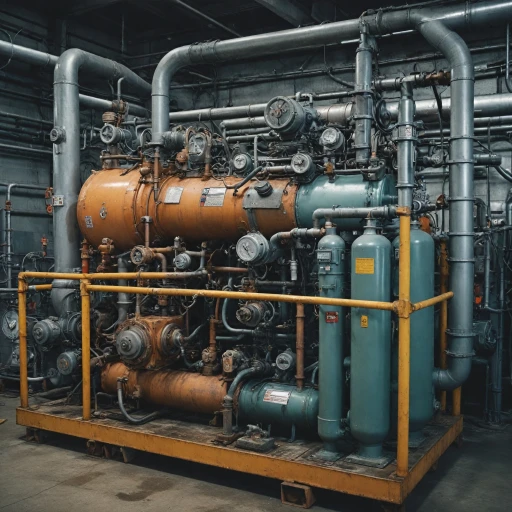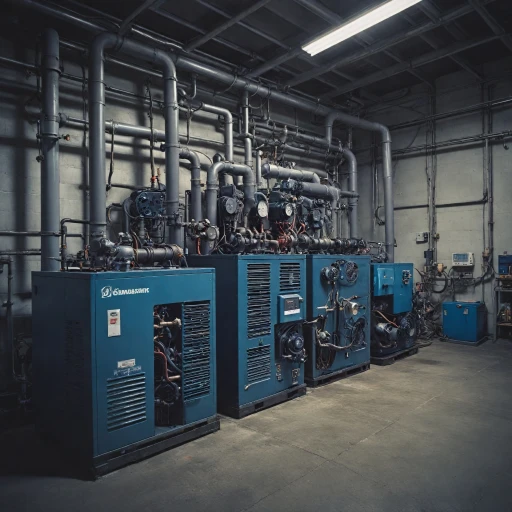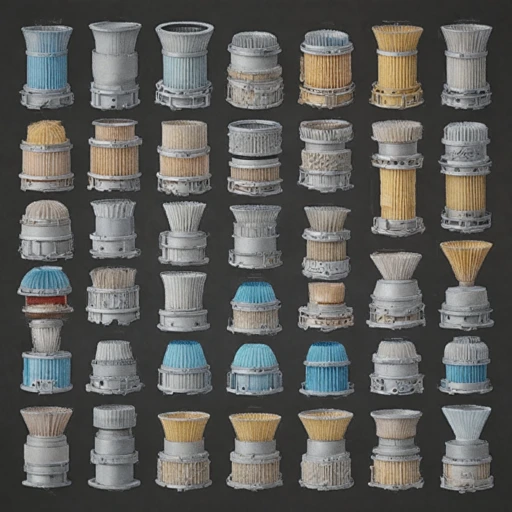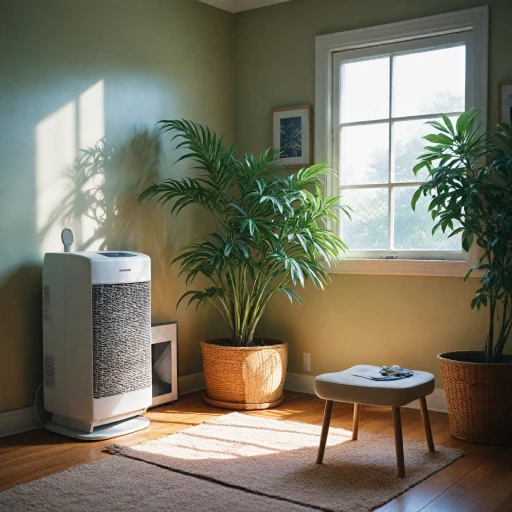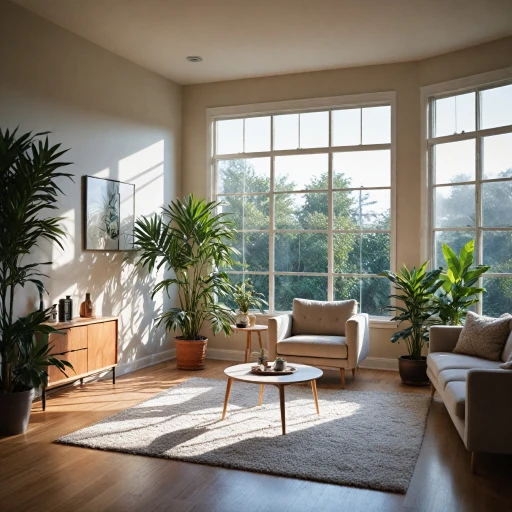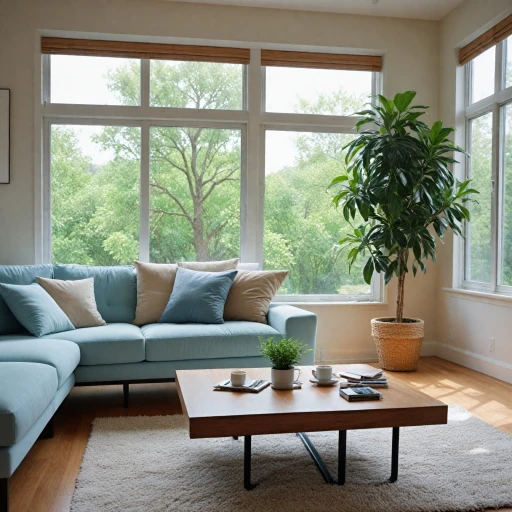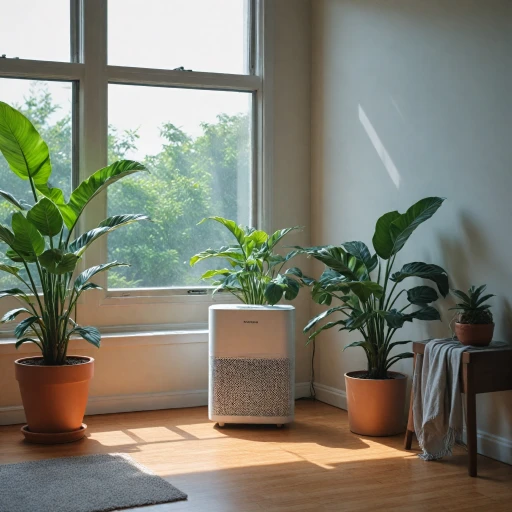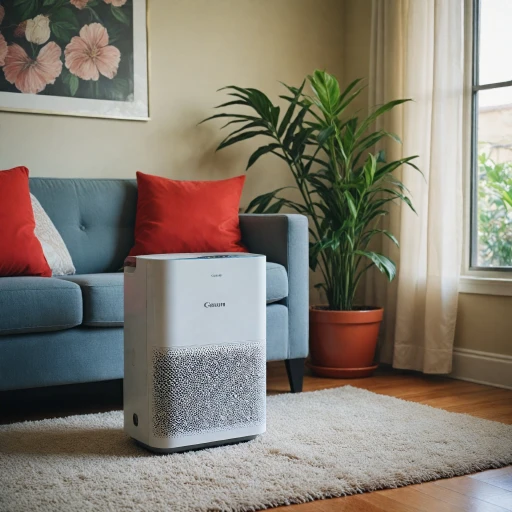
Understanding the Importance of Air Filters
Crucial Role in Maintaining Indoor Air Quality
Air filters are an integral part of ensuring that your home maintains optimal indoor air quality. Within HVAC systems, including those equipped with air purifiers and conditioning units, these filters have the primary task of trapping particles such as dust, pollen, and other pollutants. This not only safeguards the components of your HVAC system but also supports the HVAC system's efficiency and performance.
A Step Towards Healthier Living
When we talk about air filter efficiency, it largely depends on the MERV rating associated with each filter. The higher the MERV rating, the more effective the filter is at capturing smaller particles, which is crucial for those sensitive to allergens or aiming to enhance overall air quality. It’s important to regularly evaluate whether your air filters are doing their job effectively, as a dirty or clogged filter can hinder air flow, reduce efficiency, and degrade air quality.
Impact on System Longevity and Performance
The lifespan of your HVAC system and furnace air components can be significantly impacted by the quality and maintenance of the air filters you choose. Furnace filters and HVAC filters should be the correct size and fit for your specific system. Regularly changing air filters, approximately every three months or according to the recommended schedule, is vital for maintaining peak system performance and extending the lifespan of your furnace and air conditioning units, which can be a significant investment.
Understanding how often to change your filters, considering factors such as the type of filter (fiber or honeywell models), and evaluating the actual size and fit for your HVAC furnace can help you make informed decisions to ensure the best performance from your home's heating and cooling systems.
Signs It's Time to Change Your Air Filter
Detecting When Your Air Filter Needs Attention
Knowing when to change your air filter is key to maintaining optimal indoor air quality. While some signs are more obvious than others, consistent vigilance will ensure that you address air filter concerns before they impact your HVAC systems' efficiency.
Keep an eye out for these clear indicators that it's time to change your air filter:
- Increased Dust and Debris: If you find yourself dusting more often or noticing dust accumulation on surfaces shortly after cleaning, it’s a sign that your filter is not capturing as much as it should. Clogged filters can lead to dust circulating in your living space.
- Allergy Flare-Ups: A sudden increase in allergic reactions among your household members could indicate that the filter isn't trapping allergens effectively anymore. Over time, MERV rated filters lose their ability to filter airborne allergens like pollen and pet dander.
- HVAC System Strain: If your HVAC system or furnace is working harder than usual, making unusual noises, or cycling on and off more than normal, it could be due to a clogged air filter. This not only reduces system efficiency but could also lead to costly repairs.
- Unpleasant Odors: Lingering odors can signal that your air filter isn't doing its job properly. A clean filter should help in maintaining fresh indoor air and preventing stale smells.
- Visible Dirt: If there is noticeable dirt or discoloration on the filter, it's a clear sign that it’s time to be replaced. A heavily soiled filter will not perform well in capturing contaminants.
By paying attention to these warning signs and understanding how various factors influence the lifespan of air filters, you'll be better equipped to maintain healthy air quality in your home while ensuring the longevity of your HVAC system.
Factors Affecting Air Filter Lifespan
Factors Influencing the Lifespan of Air Filters
When it comes to ensuring that your HVAC system operates efficiently, understanding the lifespan of your air filters is crucial. Several variables can affect how often you need to change them and prolong their effectiveness. One significant factor is the type of air filter you use. Filters come with different MERV ratings, a measure of their efficiency in capturing dust and particles. A filter with a higher MERV rating typically lasts longer and traps smaller particles, but it also might need more frequent replacement due to its finer mesh that can get clogged faster. Environmental conditions also play a pivotal role. If your home is in an area with high pollution or dust levels, or if you have pets, you'll likely need to change your filters more often. On the other hand, homes in cleaner environments may get away with less frequent changes. Another aspect to consider is usage patterns. If you're using your HVAC system more frequently, especially during peak summer and winter months, the air filters in your furnace or air conditioning units will accumulate dirt and dust more quickly, necessitating more frequent changes. Moreover, the actual size of the filter can impact frequency of change. Larger filters, like the 20x25x4, tend to have more surface area to capture particles, which might extend their lifespan compared to smaller filters. Finally, consider the brand and quality of the filters you are using. Reputable brands like Honeywell typically offer high-quality options that might last longer and offer better air quality control. It's always best to choose a filter that fits your specific HVAC system and meets your indoor air quality needs effectively for the best fit. Understanding these factors will help you determine when it's an ideal time to replace your air filter, ensuring your HVAC system runs smoothly and maintains optimal air quality throughout your home. For insights on related equipment used across different systems, check out this article on the importance of a water and oil separator for your air compressor.Recommended Replacement Schedule
Timing Your Air Filter Replacement for Peak Efficiency
Keeping your air filter in top condition is crucial for maintaining high air quality in your home. But how often should you change your filter to ensure optimal performance? The recommended replacement schedule for a 20x25x4 air filter can help guide you.- Monthly Inspections: It's essential to check your HVAC system and air filters monthly to assess their condition. By doing this, you'll be more aware of how dirt and dust can affect filtration efficiency. Regular checks help you anticipate when a change might be needed rather than waiting for problems to arise.
- Standard Guidelines: Generally, it is recommended to replace your air filter every 3-6 months. However, this timeframe can vary based on specific factors such as the MERV rating, environmental conditions, and HVAC system usage. It's important to note that high-MERV filters, while achieving better filtration, may need to be changed more frequently to maintain airflow.
- Seasonal Changes: During peak HVAC usage seasons like summer and winter, consider changing your furnace air filters more often. Systems tend to work harder during these times, increasing the accumulation of dust and debris on the filters.
- Indicators of Need for Change: Paying attention to signs like reduced airflow, increased dust accumulation, or allergy flare-ups can signal that your indoor air quality is compromised, urging you to inspect or change your furnace filter more frequently.
Choosing the Right Replacement Filter
Picking the Perfect Replacement
When it's time to change your air filter, many options might seem overwhelming. Choosing the right air filter is crucial for maintaining air quality and ensuring your HVAC system or furnace is running efficiently. Here are some essential factors to consider for selecting the best fit:
- Filter Size: Ensure you know the actual size of the filter required for your system. The size, often marked on the old filter, typically includes dimensions like 20x25x4. Verify these measurements to get a snug fit.
- Efficiency and MERV Rating: The Minimum Efficiency Reporting Value (MERV) rating indicates how well the filter captures airborne particles. A higher MERV rating signifies better filtration, which is ideal for trapping dust, mold spores, and other pollutants that can affect indoor air quality. However, ensure your HVAC system can handle higher MERV filters.
- Type and Brand: Different brands like Honeywell offer specific features. Consider if you need a furnace filter or specific hvac filters that cater to unique needs. Honeywell air filters, for instance, are popular for their quality and durability.
- Frequency of Change: Consider how often change is required based on your air conditioning usage and environmental factors. High-quality filters may last longer, though checking them regularly is wise to maintain performance.
With these factors in mind, you can choose a filter that supports your home’s air purification system, ensuring optimal performance and air quality.
DIY vs. Professional Replacement
DIY: A Cost-Effective Approach or Leave it to the Pros?
Deciding between a DIY approach or hiring a professional for replacing air filters often hinges on personal preference, comfort level with maintenance tasks, and budget considerations. Let's explore the pros and cons. DIY Replacement Taking on the task of replacing your own air filter can be quite straightforward if you familiarize yourself with your HVAC system and follow the manufacturer's instructions. Here's why you might consider this route:- Cost Savings: By doing it yourself, you can save on labor costs. Purchasing furnace filters online or from your local store like Honeywell air filters can be much cheaper than a full service call.
- Convenience: You can change the filter on your schedule. Simply replace it during your regular maintenance routine—like when you clean your air conditioning unit.
- Knowledge of Your System: With each replacement, you gain a better understanding of how your HVAC furnace functions, potentially identifying any issues early on.
- Expertise: Professionals bring expertise that ensures your filter is correctly installed for optimal air quality and system efficiency. They'll select the best fit and merv rating for your needs.
- Thorough Inspection: When professionals change your furnace filter, they can also inspect and tune-up the HVAC system, identifying potential issues before they become costly repairs.
- Peace of Mind: If you're unsure about the right size or type of filter (like 20x25x4 filters), having a professional can alleviate any doubts and ensure you're maintaining top efficiency standards.

